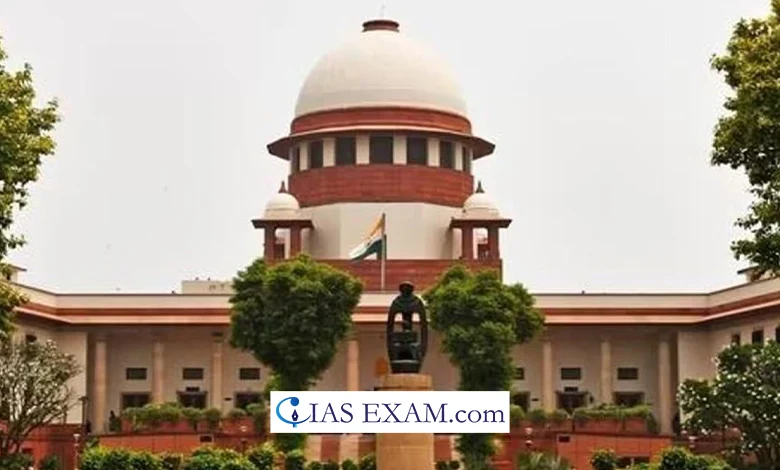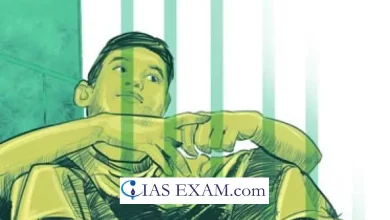Daily Current Affairs for UPSC
Supreme Court expanded the scope of Article 14 and 21
Syllabus- Polity [GS Paper-2]

Context
The Supreme Court has expanded the scope of Article 14 and 21 in order to include the “right against the adverse effects of climate change”.
Key Highlights
- The Supreme Court was hearing a plea to protect the Great Indian Bustard (GIB) from dropping its habitat due to power transmission lines.
- The court also highlighted the interconnection between climate change and various human rights, along with the right to health, indigenous rights, gender equality, and the right to development.
- The SC has also elevated the essential rights chapter sometimes to encompass numerous aspects of a dignified existence.
- However, that is the primary time that it has covered the “right against the unfavourable outcomes of climate change ”.
- The court highlighted that “States owe a responsibility of care to citizens to prevent harm and to ensure overall well-being”: The right to a healthy and clean environment is certainly a part of this duty of care.
Rationale
- Despite a plethora of decisions at the right to a clean environment, a few selections which realise climate change as an extreme danger, and national guidelines which are seeking to combat climate change, it’s far yet to be articulated that the people have a right against the unfavourable outcomes of climate change.
- As the havoc caused by climate change increases over the years, it becomes necessary to articulate this as a distinct right.
- It is recognised by Articles 14 and 21 which can be critical sources of the right to a clean environment and the proper against the adverse outcomes of climate change.
About the Articles 14 and 21
- Article 14 of the Constitution of India reads as under: The State shall not deny to any person equality before law or the equal protection of the laws within the territory of India.”
- Equality before law prohibits discrimination. It is a negative concept.
- The concept of ‘equal protection of the laws’ demands the State to present special treatment to persons in different situations in order to establish equality amongst all.
- It is positive in character.
- Therefore, the essential corollary to this will be that equals should be treated equally, whilst un-equals would have to be dealt with unequally.
- Article 21 recognises the right to life and personal liberty : It lays down that, no person will be deprived of his life or personal liberty except according to procedure established by law.
- It ensures that life or personal liberty shall not be taken away without the sanction of law. It ensures that no person shall be punished or imprisoned merely at the whims of some authority. He/she may be punished simplest for the violation of the law.
- By the 86th Amendment Act of the Constitution a new article 21-A has been added after Article 21.
- By this Amendment Act, Right to Education has been made a Fundamental Right.
Essence
- Fundamental Rights are enumerated in Part III from Article 14 to 32 in the Constitution of India.
- They provide standards of conduct, citizenship, justice and fair play. They serve as a test at the government.
- Various social, spiritual, economic and political issues in India make Fundamental Rights important.
- These rights are justiciable which approach that if those rights are violated by the government or any person else, the person has the right to approach the Supreme Court or High Courts for the protection of his/her Fundamental Rights.
Source: The Indian Express
UPSC Mains Practice Question
Q.Examine the scope of Fundamental Rights in the light of the latest judgement of the Supreme Court on Right to Privacy. (2017)





.png)



